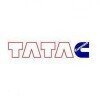Filter interviews by
Maini Precision Products Deputy Manager Interview Questions and Answers
Maini Precision Products Deputy Manager Interview Experiences
1 interview found
I applied via Naukri.com and was interviewed in Oct 2024. There was 1 interview round.
(2 Questions)
- Q1. Not remember still not interested also
- Q2. Not remember still and not interested also
Top trending discussions






Interview questions from similar companies

(11 Questions)
- Q1. Tell me brief introduction of your family and working background?
- Q2. Explain about high pressure molding line working process and parameter ?
- Ans.
High pressure molding line is a manufacturing process where materials are compressed under high pressure to create products.
Materials are placed in a mold cavity and compressed under high pressure to form the desired shape.
Parameters such as temperature, pressure, and cooling time are carefully controlled to ensure quality and consistency.
Examples of products made using high pressure molding line include automotive par...
- Q3. Explain about Sand plant function and operation?
- Ans.
Sand plant functions to wash, screen, and classify sand for various construction purposes.
Sand plant washes the sand to remove impurities and clay particles.
It screens the sand to separate different sizes for specific applications.
Sand plant classifies the sand based on particle size and shape.
Examples: Sand plants are used in concrete production, glass manufacturing, and foundries.
- Q4. Explain about sand plant additive dosing percentage and how to control raw material consumption of sand plant?
- Ans.
Sand plant additive dosing percentage is the amount of additive added to the sand in the plant to improve its properties. Controlling raw material consumption involves monitoring and adjusting the dosing percentage.
Monitor the dosing percentage regularly to ensure it is within the desired range
Adjust the dosing percentage based on the quality of the sand and production requirements
Use automation and control systems to ...
- Q5. Explain about DISA molding parameter and box size , how to control mold related rejection ?
- Ans.
DISA molding parameters and box size are crucial factors in controlling mold-related rejection.
DISA molding parameters include factors like sand temperature, compactability, and moisture content.
Box size refers to the dimensions of the mold box used in the molding process.
To control mold-related rejection, ensure proper calibration of DISA molding parameters.
Regularly monitor and adjust box size to meet the requirement...
- Q6. Explain difference between vertical and horizontal pouring system , Which type of challenges faced in vertical molding and horizontal molding line?
- Ans.
Vertical pouring system involves pouring metal vertically into the mold, while horizontal pouring system involves pouring metal horizontally.
Vertical pouring system allows for better control over the flow of metal into the mold.
Horizontal pouring system is typically used for larger molds where the weight of the metal could cause issues in a vertical system.
Challenges in vertical molding include ensuring even distributi...
- Q7. Explain about core making process also explain how to control raw material in core shop?
- Ans.
Core making process involves creating sand cores to be placed inside molds for casting metal parts. Raw material control in core shop is crucial for quality cores.
Core making process involves mixing sand with a binder to create a core that is then placed inside a mold for casting metal parts.
Raw materials such as sand, binder, and additives need to be carefully controlled in terms of quality, quantity, and consistency ...
- Q8. Explain about shell core process and parameter ?
- Ans.
Shell core process is a method used in foundry casting to create hollow cavities in metal castings.
Shell core process involves creating a shell of sand mixed with resin around a pattern to create a hollow cavity in the final casting.
Parameters in shell core process include shell thickness, resin type, curing time, and shell permeability.
Example: In automotive industry, shell core process is used to create complex engin
- Q9. Knowledge Of IATF 16949 ?
- Q10. Explain about furnace capacity and which type of grade you handle in last organisation?
- Ans.
Furnace capacity refers to the maximum amount of material that can be processed in a furnace at one time. In my previous organization, I handled high-grade steel in the furnace.
Furnace capacity is crucial for determining production output and efficiency.
Different types of furnaces have varying capacities based on their design and size.
Handling high-grade materials in the furnace requires precise temperature control and...
- Q11. Raw material consumption control of melting department?
- Ans.
Raw material consumption control in melting department involves monitoring and managing the usage of materials to ensure efficiency and cost-effectiveness.
Regularly monitor raw material inventory levels
Analyze consumption patterns and identify areas for improvement
Implement measures to reduce waste and optimize material usage
Collaborate with procurement team to ensure timely supply of materials
Utilize software systems
(2 Questions)
- Q1. Family background and salary discussion ?
- Q2. What is your goal of after 5 year?

I applied via Naukri.com and was interviewed in Jun 2024. There were 3 interview rounds.
(2 Questions)
- Q1. Purchasing process
- Q2. Achievement
(2 Questions)
- Q1. Procedure purchasing
- Q2. Saving done in previous orgnization
- Ans.
I implemented cost-saving measures by renegotiating contracts and optimizing processes.
Renegotiated contracts with suppliers to lower costs
Implemented process improvements to increase efficiency and reduce waste
Introduced energy-saving initiatives to reduce utility expenses
(1 Question)
- Q1. Salary expectation


How to tackle your supplier or treat your suppliers if suppliers payment already delayed and he is denying to providing further material.
(4 Questions)
- Q1. Which grade raw material you are using in current company and what was the difference in grade wise.
- Ans.
We are currently using grade A raw materials in our company. The difference in grades lies in the quality, purity, and cost of the materials.
Grade A raw materials are of the highest quality, with superior purity and consistency.
Grade B raw materials may have slightly lower quality and purity compared to Grade A.
Grade C raw materials are typically the lowest quality and may have inconsistencies in purity and composition
- Q2. How you finalised the costing, what was the process behind that.
- Ans.
Costing is finalised through a detailed process involving analysis of expenses, pricing strategies, and market trends.
Analyze all expenses incurred in the production process, including raw materials, labor, and overhead costs.
Consider pricing strategies such as cost-plus pricing, value-based pricing, or competitive pricing.
Evaluate market trends and competitor pricing to ensure competitiveness and profitability.
Finaliz...
- Q3. How you calculate the overhead in costing ?
- Ans.
Overhead in costing is calculated by dividing total indirect costs by a relevant cost driver.
Identify all indirect costs incurred in the production process.
Determine a relevant cost driver, such as machine hours or labor hours.
Divide the total indirect costs by the cost driver to allocate overhead.
For example, if total indirect costs are $10,000 and the cost driver is machine hours at 1,000 hours, the overhead rate wou
- Q4. How you calculate that, which operation needs which tonnage?
- Ans.
Tonnage calculation for operations involves analyzing factors like material type, thickness, cutting speed, and machine capacity.
Analyze the material type being processed
Consider the thickness of the material
Take into account the cutting speed of the machine
Ensure the tonnage does not exceed the machine's capacity
Use formulas or charts provided by the machine manufacturer for guidance
Interview Preparation Tips

I applied via Recruitment Consulltant and was interviewed in Jul 2023. There was 1 interview round.
(1 Question)
- Q1. Question asked on resume based
Interview Preparation Tips
- MSA Study
- SPC Study

I applied via Approached by Company and was interviewed in Jul 2022. There were 3 interview rounds.

(2 Questions)
- Q1. Some questions related to Oracle p2p and o2c process
- Q2. Some technical questions from SQL, pl SQL, Oracle forms, Oracle reports
(2 Questions)
- Q1. Why you want to join michelin
- Ans.
I want to join Michelin because of its reputation for excellence and innovation in the automotive industry.
Michelin is a global leader in the automotive industry, known for its high-quality products and cutting-edge technology.
I am impressed by Michelin's commitment to sustainability and its efforts to develop eco-friendly tires.
The company's strong focus on research and development aligns with my passion for innovatio...
- Q2. Why we should hire you
- Ans.
I have the necessary skills, experience, and leadership qualities to excel in the role of Deputy Manager.
I have a proven track record of successfully managing teams and achieving targets.
I possess strong communication and interpersonal skills, which enable me to effectively collaborate with colleagues and stakeholders.
I am highly organized and detail-oriented, ensuring efficient operations and problem-solving.
I am adep...
Interview Preparation Tips


(2 Questions)
- Q1. About Weldshop
- Q2. Robotic Programing

I applied via Referral and was interviewed before Oct 2021. There were 3 interview rounds.

(1 Question)
- Q1. Work profile, experience, market activities, strategy, family background, team management, area knowledge, market informations, competitors & their activities
(1 Question)
- Q1. Family background, reason for leaving earlier company. Salary expectations
Interview Preparation Tips

(1 Question)
- Q1. You would be asked about experience and your greatest achievements

I applied via Recruitment Consulltant and was interviewed before Sep 2022. There were 4 interview rounds.
(1 Question)
- Q1. General questions like my introduction, my previous working experience, family background etc.
(1 Question)
- Q1. There was so many technical questions about pumps, bearing, contractors, relay, inverter, rectifiers etc
(1 Question)
- Q1. This round was about some more technical questions and safety related questions and also some questions from general aptitude etc.
(1 Question)
- Q1. This round was for how was your expectations, how do you manage things, how do you handle your team etc.
Interview Preparation Tips
Maini Precision Products Interview FAQs
Tell us how to improve this page.
Maini Precision Products Interviews By Designations
- Maini Precision Products Junior Engineer Interview Questions
- Maini Precision Products Quality Inspector Interview Questions
- Maini Precision Products Chro Interview Questions
- Maini Precision Products CNC Operator Interview Questions
- Maini Precision Products Deputy Manager Interview Questions
- Maini Precision Products Diploma Trainee Engineer Interview Questions
- Maini Precision Products Electrical Maintenance Engineer Interview Questions
- Maini Precision Products Engineering Intern Interview Questions
- Show more
Interview Questions for Popular Designations
- Deputy General Manager Interview Questions
- Deputy Project Manager Interview Questions
- Deputy Manager Operations Interview Questions
- Deputy Engineer Interview Questions
- Deputy Branch Manager Interview Questions
- Deputy Sales Manager Interview Questions
- Deputy Manager - Finance Interview Questions
- Deputy Manager Maintenance Interview Questions
- Show more
Deputy Manager Interview Questions from Similar Companies
Maini Precision Products Deputy Manager Reviews and Ratings
based on 5 reviews
Rating in categories
|
Junior Engineer
456
salaries
| ₹1.5 L/yr - ₹4.4 L/yr |
|
Quality Engineer
149
salaries
| ₹1.2 L/yr - ₹5 L/yr |
|
Engineer
108
salaries
| ₹2 L/yr - ₹6.5 L/yr |
|
Senior Engineer
94
salaries
| ₹3.3 L/yr - ₹8 L/yr |
|
Production Engineer
69
salaries
| ₹1.6 L/yr - ₹5.1 L/yr |

Bharat Forge

Godrej Aerospace

Tata Advanced Systems

Hindustan Aeronautics
- Home >
- Interviews >
- Maini Precision Products Interview Questions >
- Maini Precision Products Deputy Manager Interview Questions









